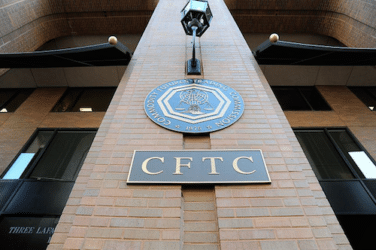01.18.2017
There are few more important or influential roles in the financial markets than that of U.S. Securities and Exchange Commission (SEC) Chairman. The person who assumes this responsibility is charged with fulfilling the SEC’s mission to protect the interests of investors, ensure fair and orderly markets, and facilitate capital formation. This mission statement carries with it a certain degree of diversity and as such, requires distinct skill sets in ensuring its success. Finding a Chairman with expertise in all three is extremely difficult, if not impossible, in today’s complex financial system and markets.
Recently, Jay Clayton, an investment banking attorney was nominated to fill the position of SEC Chairman and since his announcement many of us have been trying to learn more about this man as we ponder an SEC under a Donald Trump Administration. As for myself, I have never met Mr. Clayton, therefore am not qualified to determine what type of Chairman he would be or if he is qualified. That decision will be made by individuals closer to the process with better information. Having said that, it is natural to wonder how the SEC would look and what its impact on our economy would be, if the incoming Chair has a skill set like Mr. Clayton’s. In particular, as it relates to board diversity and capital formation.
Like many former Chairmen, Mr. Clayton is an attorney; however he has never worked in a regulatory or law enforcement capacity. Rather his expertise is in investment banking. At first glance, a Chairman such as this would add diversity, as measured by skill set to an eventual five-person Commission that historically has been characterized with individuals with enforcement and regulatory backgrounds. Board diversity has been greatly studied and proven to provide certain efficiencies and incremental value to shareholders in corporations. Whether efficiencies can also be obtained within a regulatory agency comprised of a diverse board is difficult to predict because the frequency of such occurrences and data is limited. However, when one considers the trilateral mission of the SEC most would conclude that a diverse five-person “board” is exactly what is needed and not just today, but going forward.
Protecting the interests of investors requires enforcement expertise; ensuring fair and orderly markets requires quantitative expertise in understanding market structure; and, capital formation requires investment banking expertise. Given the unlikelihood that there exists an individual with the expertise of an attorney general, an economist and investment banker, charting a path towards building a diverse SEC board appears to be a natural course of action. It is important to note that board diversity does not equate to equal power among board members. It is the Chairman who sets the agenda and prioritizes resources for the SEC. Therefore, the skill set of the Chairman does carry influence in the approval process for anyone nominated. Although it does not suggest that a Chairman with investment banking expertise could not be effective in ensuring that the SEC fulfills its enforcement and fairness roles.
The mandates in the SEC’s mission are defined and always present. However, they do not possess weightings, such as; 70% investor protection, 20% fair and orderly markets and 10% capital formation, which need to be maintained at all times. Whether this was done intentionally, I don’t know. In the absence of clarity, it is rational to assume that there is some flexibility on the weightings based on the changing needs of our economy. This begs an important question that those in deciding on Mr. Clayton’s nomination will undoubtedly ask themselves: What does our country and economy need in its SEC Chairman at this moment in time? To those making this decision, I hope you will keep an open mind to someone like Mr. Clayton, as the role of capital formation is critical for companies of all sizes and is a catalyst for driving economic strength, overall security and well-being of our nation.






